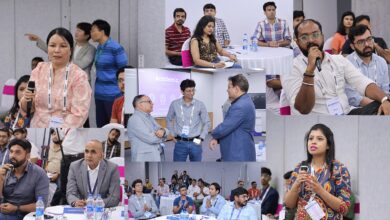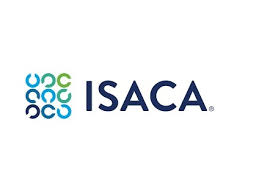The Power of Giving: A Webinar on Bridging the Gap by ShareOn
ShareOn is a fundraising platform built under a European Union and Welthungerhilfe project, which was created as a consortium of reputed and credible civil society organisations across the country. ShareOn conducted a webinar on ‘The Power of Giving’ recently, with the support of ETI Services.Business Wire IndiaShareOn is a fundraising platform built under a European Union and Welthungerhilfe project, which was created as a consortium of reputed and credible civil society organisations across the country. ShareOn conducted a webinar on ‘The Power of Giving’ recently, with the support of ETI Services.
The speakers at the webinar included Mr Sai Krishna Nanduri, CEO, National Skills Foundation; Mr Dilip Kumar Dubey, Founder, Pravah Jharkhand; Ms Pooja Bhati, Manager, Tarun Bharat Sangh; Ms Parmeshwar Bawa, Senior Output Editor and Correspondent, NDTV; Ms Narjis Husain, Independent Journalist and Ms Muskan Raina, Social Media Influencer. Dr Sukriti Chauhan, CEO, ETI moderated the event.
Mr Sai Krishna Nanduri, CEO, National Skills Foundation of India said, “Crowd Funding Campaigns are an opportunity for people with resources to empathize with vulnerable communities and bring them out of their vulnerable situations; and ShareOn promotes this spirit. ShareOn focusses on institutional and structured works for community development. ShareOn is working towards bringing focus not just on individual and immediate crisis but also the ones that require attention for betterment of coming generation viz., Sustainable Development Goals.”
Ms Pooja Bhati talked about the many barriers that getting funded presents, especially for small civil society organisations. “As a local civil-society organisation working exclusively in one region for one issue, we face difficulties in connecting with donors to execute our strategies. Even when we do, there are bureaucratic processes and technical language that we aren’t used to dealing with at a grassroot level. These spaces must be made accessible for everyone who wishes to further their work and deepen its impact. ShareOn has helped us counter these barriers.”
Mr Dilip Kumar Dubey, Founder, Pravah Jharkhand said “Fundraising platforms like ShareOn offer an excellent avenue for organisations like ours to get exposed to not only donor but also other opportunities and areas of work that can be incorporated within the ambit of our work. The fact that these platforms exist online also help us reach a wider audience, ensuring that more people can come together as a community to cause impact. There is strength in community.”
“Media is an important pillar of social growth. In the age of information, media plays an essential role in ensuring information reaches even to the most marginalised groups, providing an outlet for their voices and stories. This is done not only through the internet but also radios, television, pamphlets and any means that share information. Journalists like me are only mediums to convey stories from the ground. ShareOn provides a platform for actual impact,” added Ms Parmeshwar Bawa, Senior Output Editor and Correspondent, NDTV.
Ms Narjis Husain said “Unless we have a broader vision to improve the social sector through a holistic view of social determinants and the various connections between them, we will not be able to make actual change. We as individuals can help and not only during a crisis. Giving and sharing only during crisis is not the only thing we should wait for, we must support without it as well.”
Ms Muskan Raina, Social Media Influencer highlighted, “Social Media particularly in the urban sphere has become increasingly available for people, and this is especially true for young populations. During the second wave of COVID with social media we saw how one can reach two, can reach ten to create change. Through ShareOn this can be amplified to reach grassroots and build a network of changemakers- all coming together under one umbrella.”
Dr Sukriti Chauhan, CEO, ETI spoke about the prevalent social barriers that obstruct development saying, “Gaps between developed and developing India cannot be looked out without addressing important factors such as gender and caste. Women bear most social disadvantages and so to bridge the gap, we must first look at what constitutes it.”![]()
Disclaimer: This content is distributed by Business Wire India.



